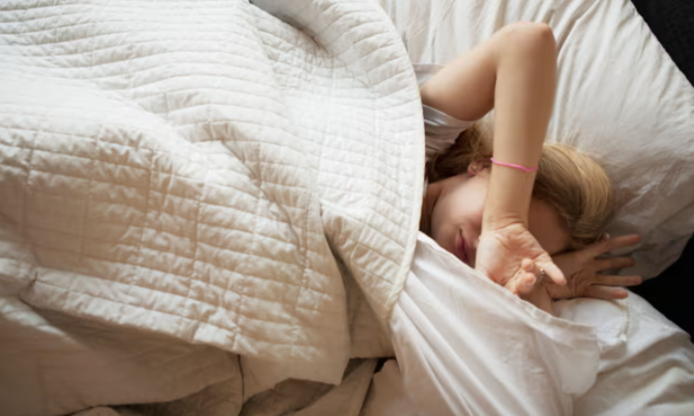Teenagers who go to bed earlier and get more sleep tend to perform better on cognitive tests, according to a new study that highlights how even small differences in sleep habits can significantly affect brain function during adolescence, the Guardian reports.
Researchers from the University of Cambridge and Fudan University in Shanghai analyzed data from over 3,000 adolescents as part of the Adolescent Brain Cognitive Development study, the largest long-term study of brain development and child health in the United States. Participants had their brain activity scanned, underwent cognitive testing, and tracked their sleep using wearable devices such as Fitbits.
The study identified three distinct sleep patterns among the teens. The group that went to bed the earliest, slept the longest—an average of seven hours and 25 minutes—and had the lowest resting heart rates scored the highest on cognitive tests, including reading, vocabulary, and problem-solving skills. They also had the largest brain volumes and strongest brain function, as revealed by brain scans. In contrast, the group that went to bed the latest and woke up the earliest—averaging only seven hours and 10 minutes of sleep—scored the lowest.
While the researchers expected healthier sleep habits to correlate with better mental performance, they were surprised by how even minor differences in sleep duration influenced cognitive outcomes.
“It suggests that small differences in sleep amounts accrue over time to make a big difference in outcomes,” said Professor Barbara Sahakian, a clinical neuropsychologist at the University of Cambridge. “We think that it’s the sleep driving the better cognitive abilities, in part because we consolidate our memories during sleep.”
The American Academy of Sleep Medicine recommends that teenagers aged 13 to 18 get between eight and ten hours of sleep per night. However, the study found that even those with the best sleep habits fell short of this guideline.
Experts say that developmental changes during adolescence often lead to later bedtimes and shorter sleep duration, particularly on school days. This can contribute to what sleep researchers refer to as “social jet lag”—a mismatch between biological sleep rhythms and early school start times.
Colin Espie, a professor of sleep medicine at the University of Oxford who was not involved in the study, said the findings underscore the importance of sleep for developing brains.
“One of the consequences of having highly evolved brains is that we are particularly dependent on sleep, especially in our developing years,” he said. “We would do well as a society to place more emphasis on sleep.”
He and other experts advocate for incorporating sleep education into school curricula and exploring ways to help teens adopt healthier routines. Suggestions include promoting regular exercise, limiting screen time in the evenings, and establishing consistent bedtimes.
Gareth Gaskell, a psychology professor at the University of York, called for more intervention-based research.
“Quite simple changes, such as adjusting screen use before bed, could improve the timing and duration of sleep,” he said.










The latest news in your social feeds
Subscribe to our social media platforms to stay tuned